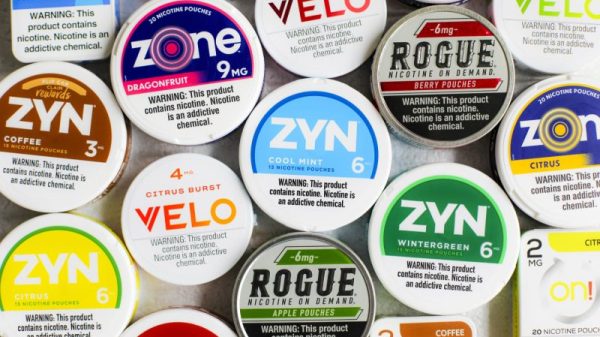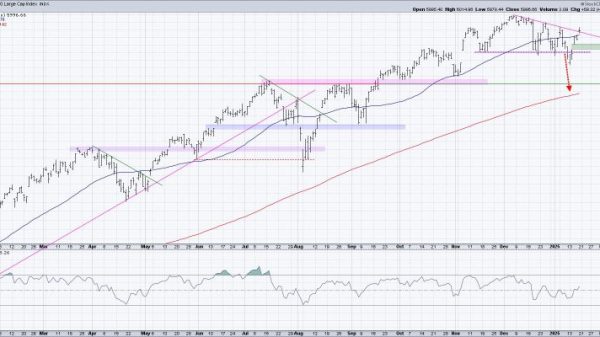Human Rights Watch (HRW) on Thursday accused Israel of “acts of genocide” against Palestinians in Gaza by depriving them of adequate water supplies.
The group, in an extensive report, found that between October 2023 and September 2024, Israeli authorities deprived Palestinians of what the World Health Organization (WHO) says is the minimum quantity of water required for survival in prolonged emergency situations. This has contributed to thousands of deaths and the spread of numerous diseases, the report found.
Israel, which has repeatedly denied allegations of genocide and of using hunger as a weapon of war, denied HRW’s latest accusations, with a foreign ministry spokesperson saying the report was “full of lies.”
According to WHO, a person needs between 50 and 100 liters (13 and 26 gallons) of water per day to ensure their “basic needs are met.” In protracted emergency situations, the minimum amount of water can drop to 15 to 20 liters per day for drinking and washing.
For the over 2 million Palestinians living in the Gaza Strip, even this is out of reach, HRW found. Most or all of the water Palestinians in Gaza have access to is not safe to drink.
HRW says Israel’s actions amount to acts of genocide under the Genocide Convention and the Rome Statute of the International Criminal Court (ICC). It stresses that the deprivation of water is leading to the slow deaths of Palestinians in Gaza, including newborn babies whose mothers can’t feed them due to malnourishment and dehydration, and who are drinking formula mixed with dirty water.
Israel’s war in Gaza, launched after Hamas’ attack in October 2023, has killed nearly 45,000 Palestinians and injured 106,000 more, according to the Palestinian Ministry of Health.
HRW says that the obstruction of water in Gaza is a deliberate act by Israeli authorities, citing Israel’s obstruction of humanitarian aid including supplies relating to water treatment and production, restrictions on the flow of clean water through pipelines from Israel into Gaza, as well as “massive” damage to Gaza’s water infrastructure caused by Israeli strikes.
In January, the World Bank and Ipsos, a market research firm, estimated that nearly 60% of Gaza’s water and sanitation infrastructure had been damaged or destroyed by hostilities. By August, that had risen to 84%.
In a statement on X, Oren Marmorstein, the spokesperson for Israel’s foreign ministry, denied the accusations and said Israel had “facilitated the continuous flow of water and humanitarian aid” into Gaza.
He said Israel had also ensured water infrastructure, including four water pipelines and water pumping and desalination facilities, remain operational.
‘Brazen breach of international law’
Israel has previously faced accusations of using water as a weapon of war in Gaza.
Pedro Arrojo-Agudo, the UN special rapporteur on the human rights to safe drinking water and sanitation, said in November 2023 that “every hour that passes with Israel preventing the provision of safe drinking water in the Gaza strip, in brazen breach of international law, puts Gazans at risk of dying of thirst and diseases related to the lack of safe drinking water.”
The crisis has fueled diseases in Gaza and caused deaths estimated in the thousands, HRW said. The scale of the devastation caused by a lack of water may likely never be fully understood, the organization warned, due to the decimation of Gaza’s health care system including disease tracking.
Polio, a highly contagious viral disease often caused by insufficient access to safe water and sanitation, is one example of this. WHO testing first discovered the polio virus in samples of sewage taken from overcrowded tents of people displaced by Israeli airstrikes in Gaza in July. On August 16, the Palestinian Ministry of Health confirmed a case of polio in a 10-month-old child – the first case in Gaza in 25 years.
Bacterial infections like diarrhea have become commonplace in the enclave due to the consumption of contaminated water. Describing the impact of being forced to drink from an unclean well, one man told HRW: “I was getting sick, my kids were vomiting and had diarrhea, and I had diarrhea…This was from the moment we started drinking the (dirty) water.”
The HRW report comes as an Israel-Hamas ceasefire deal remains elusive, although negotiations appear to have taken a more positive turn in recent days.
In an official statement on Tuesday, Hamas said reaching an agreement was “possible.” A Hamas source also added that talks were “positive and optimistic.” However, the militant group cautioned that hurdles remain.
Both Israeli and Hamas teams are in the Qatari capital for indirect negotiations.


































